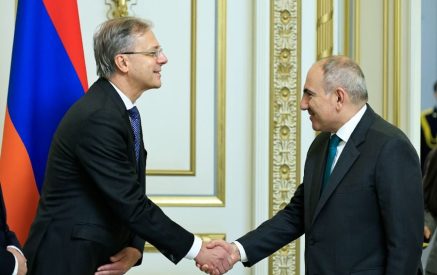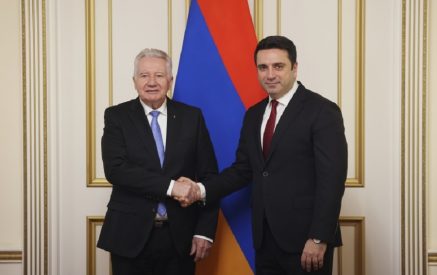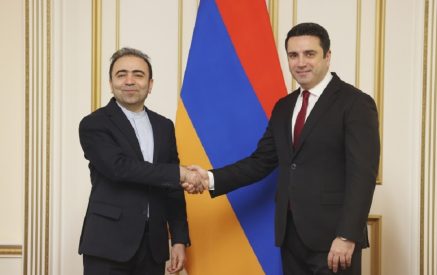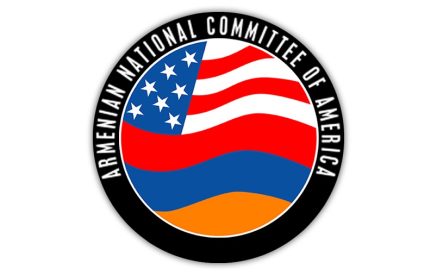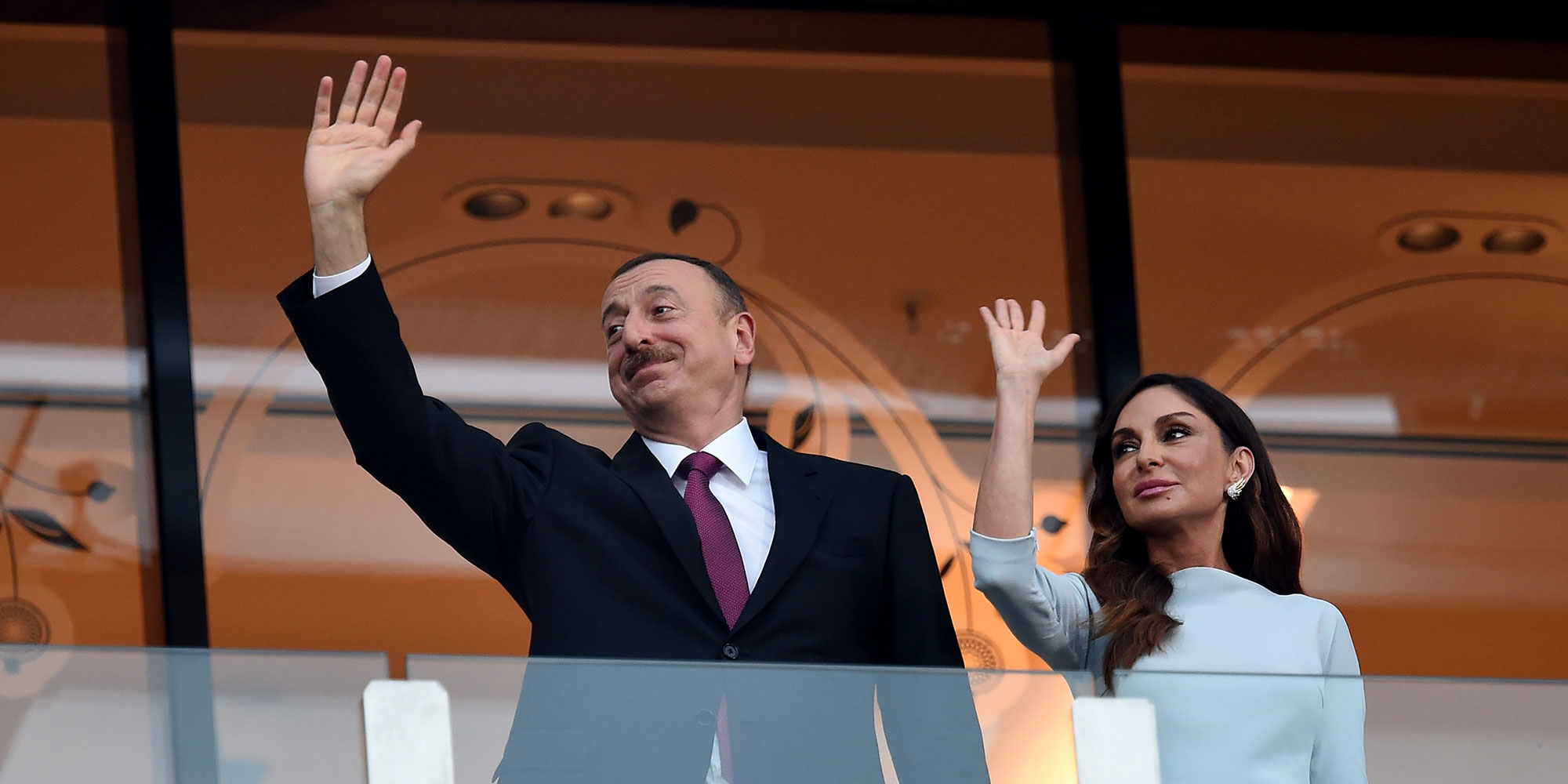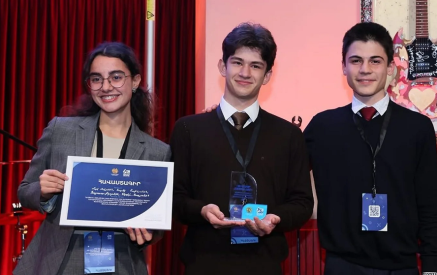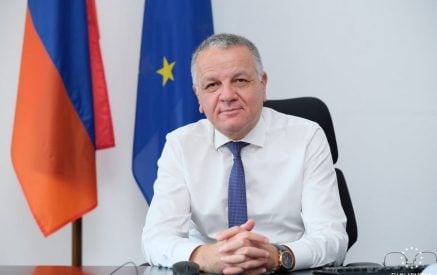Dagens Nyheter, 18 December, 2017, by Lisa Röstlund and Josefin Shield
Non-official translation
“The president’s position is by no means dictatorial”. This is how the researcher Svante Cornell, head of the MFA-funded Institute, ISDP, has described Azerbaijan’s leaders. He has been criticized for whitewashing the dictatorship. Now DN can reveal that this institute is sponsored by an Azerbaijan lobby organization and that he is in a council funded by Azerbaijani regime.
In early November, MFA and Business Sweden traveled to Azerbaijan with a trade delegation. The purpose was to promote Swedish companies’ ability to make contracts in the country.
As DN has written, the trip has received strong criticism from, among others, Transparency International, which believes that doing business with is very risky in terms of promoting the corruption that the country is known for and making it easy for the regime to continue capturing journalists and opposition members.
Researcher Svante Cornell, Director of the Institute for Security and Development Policy, ISDP, appears in many contexts as an expert on Azerbaijan. But from several places he has been criticized to whitewash the regime.
The DN can now reveal that Cornell and ISDP have close ties with the country’s government.
According to their website, the ISDP aims at increasing the understanding of international policies. The head office is located in Nacka, outside Stockholm, and the operations are financed by around 17 million annually, largely by public funds from the U.S and EU. Several of the ISDP projects have also received funding from the state aid agency SIDA.
The ISDP is also sponsored , according to the website, by Telia Sonera, which was suspected but has not been charged (due to a lack of evidence) for having bribed the Azerbaijani presidential family.
Another ISDP sponsor is the Azerbaijani lobby organization “The European Azerbaijan Society”. It is driven by the son of a minister in Azerbaijan’s government and according to The Economist 1843 Magazine , it contributes to the government’s “caviar diplomacy”: attempting to swipe off criticism against the country’s crimes against the population as well as inviting people to cultural events and paying British politicians for travelling to the capital of Baku.
Svante Cornell is also a member of the advisory board of the Caucasus International think tank funded by the Azerbaijan regime. The board also includes the foreign minister of the country.
The Caucasus International think tank is owned by the government-sponsored organization SAM, whose official purpose is , among other things, to “create and maintain a positive image of the Republic of Azerbaijan abroad”.
According to Bill Fierman, American Caucasus Expert and Retired Professor of Indiana University in the United States, this type of regime-financed “mindset” acts as a PR agency.
– They act as a display window for the regime. “Look here, we have representatives from the United States and the neutral Sweden, so we are not close to any government.” The reports that the so-called think-tank media publishes go through the sponsoring government to shed positive light into their reputation, while the foreign names give the report legitimacy.
Cornell does not agree to have an interview but replies via ISDP’s press officers that the purpose of the council that he is a member of is to read and comment on the script that is being submitted to the think-tank’s journal. He states that he has not received any compensation for his participation.
Cornell’s book “Small Nations and Great Powers” from 2001, is one of the recommended books of the regime financed SAM. Cornell does not want to comment on that. Nor on the fact that the Institute is sponsored by the Azerbaijan lobby organization.
Cornell has been criticized several times for whitewashing a dictatorship. Among other things, Cornell wrote in a debate article in Svenska Dagbladet in 2012 that “the president’s position is by no means dictatorial”. Fredrik Malm, Member of the Parliament from the Liberal party, described Cornell’s text as “the most flagrant Swedish attempt so far to clear the dictatorship”.
Cornell does not want to respond to the criticisms of the debate article, but refers back to his own article .
Fredrik Malm is now responding to the new information about Cornell’s close ties with the Azerbaijan government.
“There are always a lot of people running to the areas of undemocratic regimes. But it is surprising that the Swedish Ministry of Foreign Affairs engages with them. I find it very hard to believe that the MFA was unaware about the links here, “he told DN.
Richard Kauzlarich was the United States Ambassador to Azerbaijan in 1994-1997, and has had sporadic contact with Cornell for over two decades. He believes that Cornell has over the years changed the attitude towards the government in the country.
“Svante has become increasingly and openly apologetic to the Aliyev regime,” he told DN.
Kauzlarich has criticized Cornell’s book Azerbaijan since Independence from 2011, among other things, for describing the corruption of the Azerbaijani government as necessary in the absence of modern democracy.
– The Baku regime uses individuals like Svante to promote a better image of Azerbaijan, while avoiding the need to improve the human rights situation.
Ami Hedenborg, spokesman for Amnesty International Sweden:
“Azerbaijan is a country that seriously violates human rights, and if you are a Swedish scientist in a council funded by the regime, which conveys a positive image of the country, it is very worrying. One has to ask himself: in whose interest do I sit here and what do I convey? What you really need to convey are the grave violations of human rights that happen.
DN has contacted Foreign Minister Margot Wallström (S). MFA answers in an email:
“The MFA supports several organizations that contribute with area expertise to the ministry’s knowledge base and strengthen the Swedish role. ISDP is one of these. The MFA’s support does not make these organizations representatives of the MFA. Therefore, the issue of what ISDP employees do in other contexts should be primarily addressed to ISDP. ”
Azerbaijan
The Azerbaijan regime under Ilham Aliyev is described by the Foreign Policy Institute, UI, as ultimately authoritarian and shows no signs of softening, despite repeated protests from a number of international organizations.
The Council of Europe’s Anti-Corruption Body GRECO has noted that corruption is one of Azerbaijan’s biggest problems, despite repeated national and international efforts to improve and increase transparency.
According to the Ministry of Foreign Affairs, the country shows “serious weaknesses in respect for human rights”, including freedom of the press and freedom of expression, electoral conduct, the rule of law and the rights of women and hbtq people.
Following a severely criticized parliamentary elections in 2015, the regime has continued to imprison opposition members and journalists and silence the critical media. The economic system is characterized by corruption and lack of transparency.
According to the Constitution, Azerbaijan is a democracy, but in practice, the country is a tough dictatorship, as noted by the UI.
Svante Cornell
Svante Cornell founded the ISDP, the Institute for Security and Development Policy, 2007. The Institute has its headquarters in Nacka, outside of Stockholm. But also has branches in Yangon, Chengdu and Washington.
According to the 2016 annual report, ISDP had a total income of SEK 19.8 million. One third of the money came from the Foreign Ministry, one third from the EU. Other financiers are, according to the website, Telia, the security company 2Secure and The European Azerbaijan Society, a lobby organization that works to spread a positive image of Azerbaijan.
Cornell also runs the private company Cornell Caspian Consulting. On the company’s website there were earlier pictures of Cornell when he participated in a PR event with the then President of Azerbaijan for the construction of the Great Pipeline, completed in 2005, to supply oil from the Caspian Sea to the Mediterranean. Human rights organizations such as Human Rights Watch have criticized the Western world’s focus on military and oil in connection with pipeline building, which has exceeded human rights
Cornell’s positive statements about Azerbaijan
“Azerbaijan’s basic role is not understood by the West”, to Azernews, 2015.
“Since then, Azerbaijan has constantly chosen to be part of the modern world. It is a vision shared by the country leader,” the Euroactive News Center, 2016 .
“The president’s position is by no means dictatorial” and “We are fed in the media with a caricature of Azerbaijan which must be useful for PR purposes but lacking facts”, in the debate article in Svenska Dagbladet 2012, on the criticism of Azerbaijan in connection with Eurovision song contest.




































